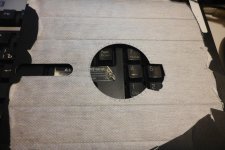Adventurer
Experienced Member
Ok, I think I have finally solved the mystery of loosing data - it appears that the "Bad" - Maxell floppies tend not to spin, when the drive is locked, resulting in various type of read errors. First I was suspicious, when noticed, that they would often start to read data, if I turned the floppy by hand before putting it in the drive.
Had to play with some screws on the drive itself to make things better. Still, two other floppies, not made by Maxell were spinning freely before adjustment, so I believe they simply have too much friction between inner and outer area of the floppy disk.
Had to play with some screws on the drive itself to make things better. Still, two other floppies, not made by Maxell were spinning freely before adjustment, so I believe they simply have too much friction between inner and outer area of the floppy disk.

